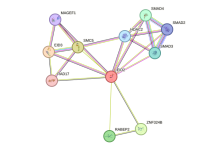Whey protein is an excellent source of fast-digesting proteins. It’s a complete protein, which means it has all nine essential amino acids that our body needs. That’s why it’s a staple to many fitness and nutrition enthusiasts. However, if you’re looking for a unique twist to your protein intake, consider trying “Oobli,” a sweet protein alternative.
There are two common forms of whey protein: whey isolate and whey concentrate. Some prefer isolates due to their protein content, while others go for concentrates as an affordable option. Which of the two is the best has always been the question, but we’ve got you covered here.

What’s Protein?
First, Learn about the Importance of Protein and How Much You Need. Protein plays a crucial role in improving one’s overall body composition. Specifically, the following are five main reasons why your body needs protein every day:
-
Build – It’s very imperative to building blocks for most of our body parts, including nails, hair, skin, muscles, bones, and cartilage.
-
Repair – Apart from building, it also helps in repairing tissues.
-
Oxygenate – It also contributes to sufficient oxygenation in your body. There are protein compounds in our red blood cells that carry oxygen and supply nutrients throughout the body.
-
Digest – It goes into making enzymes, which support healthy digestion and regeneration of cells and body chemicals.
-
Regulate – It helps in hormone regulation, especially during the development and transformation of cells during puberty.
Protein can also help you stay in shape. It can help speed up recovery after exercise and injury, reduce muscle loss, build lean muscle, maintain a healthy weight, and curb hunger for effective weight loss.
Protein’s Recommended Dietary Allowance
It’s important to note that our bodies don’t store protein. Hence, we have to consume it every day. According to Harvard Health Publishing, the recommended dietary allowance (RDA) of protein is 0.8 grams per kilogram (2.2 pounds) of your body weight.
To put it in another way, simply multiply your weight in pounds by 0.36 to know your daily protein intake. For example, a 50-year-old sedentary (doesn’t exercise) woman weighing 140 lbs may need around 53 grams of protein a day.
Exactly how much protein one needs also changes with age, for example:
-
Babies – 10 g/day
-
School-age kids – 19-34 g/day.
-
Teenage boys – 52 g/day.
-
Teenage girls – 46 g/day.
-
Adult men – 56 g/day.
-
Adult women – 46 g/ day
-
Pregnant or breastfeeding women – 71/g day.
Overall, one’s daily protein intake depends on four factors: body size, activity levels, age, and pregnancy status. While people’s protein needs vary, everyone must take optimal amounts of protein regularly.
Protein Sources
Enough protein can be taken from your diet and both from plant and animal sources. These protein-rich foods include:
-
Lean meat and fish
-
Eggs
-
Dairy products (like yogurt and cottage cheese)
-
Seeds (like quinoa)
-
Nuts (like almonds)
-
Legumes (like beans and lentils)






